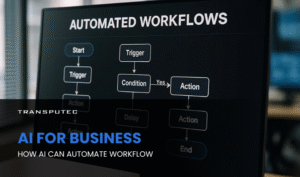Written by KRITIKA SINHA | MARKETING
In the digital age, cloud computing and cybersecurity stand out as distinct yet interconnected pillars. Cybersecurity is responsible for safeguarding against unauthorised access, cyber threats, and network and data compromise. On the other hand, cloud computing leverages the internet to provide easy access to scalable computing resources. Although these fields are different, they can collaborate to enhance the fortification of our digital ecosystems. In this blog, we’ll explore how cloud computing is transforming cybersecurity, offering enhanced encryption, real-time threat detection, and resilience against attacks. Discover how cloud solutions can safeguard your business and ensure you stay one step ahead of cybercriminals.
Before exploring their synergy, let’s first define the roles and duties of each.
Why Cloud Computing is the Future of Cybersecurity?
Cloud computing is no longer just a trend; it’s a necessity in today’s digital world. Businesses adopting cloud strategies have a clear advantage—enhanced security, automatic compliance, and real-time threat intelligence. With cybersecurity concerns at an all-time high, investing in cloud solutions provides both immediate protection and long-term resilience.
Transputec is here to guide you every step of the way.
What is Cloud Computing?
Cloud computing is the delivery of computing services—including servers, storage, databases, networking, software, and analytics—over the internet, often referred to as “the cloud.” Instead of owning and maintaining physical hardware and infrastructure, businesses and individuals can access these resources on-demand from cloud providers like Amazon Web Services (AWS), Microsoft Azure, or Google Cloud. This model offers flexibility, scalability, and cost efficiency, allowing users to pay only for the services they need while benefiting from advanced security, automatic updates, and the ability to access data and applications from anywhere in the world.
“At Transputec, we provide comprehensive support in cloud computing by offering tailored solutions that meet the specific needs of businesses. Our services include cloud migration, helping organisations smoothly transition from on-premise infrastructure to cloud environments, and managed cloud services, where we monitor, maintain, and optimise cloud operations for efficiency and security."
What is Cybersecurity?
Cybersecurity refers to the practice of protecting systems, networks, and data from digital attacks, unauthorised access, damage, or theft. It encompasses a wide range of technologies, processes, and practices designed to safeguard sensitive information, prevent cyberattacks, and ensure the integrity, confidentiality, and availability of data. With the growing dependence on digital systems, cybersecurity has become essential for businesses and individuals to defend against malware, phishing, ransomware, and other cyber threats that can cause significant harm to operations and personal privacy.
“At Transputec, we offer robust cybersecurity support by providing end-to-end solutions to protect businesses from cyber threats. Our services include threat monitoring and incident response, where our expert team continuously monitors your systems for suspicious activities and responds immediately to any security breaches."
The Synergy of Cloud Computing and Cybersecurity
Cloud computing has revolutionised the way businesses approach cybersecurity. By offering scalable, flexible, and cost-effective solutions, cloud platforms provide a robust foundation for implementing advanced security measures. The integration of cloud computing with cybersecurity strategies allows organisations to:
- Rapidly deploy security updates and patches
- Leverage advanced threat intelligence and analytics
- Implement robust disaster recovery and business continuity plans
- Scale security measures in line with business growth
Protect your Business 24/7 with Transputec!
Our Managed SOC Cost Calculator estimates potential expenses for security tools and other costs based on your requirements.
Key Benefits of Cloud Computing in Cybersecurity
1. Data Encryption & Security in Transit
One of the key advantages of cloud computing is its robust encryption mechanisms. Cloud providers implement end-to-end encryption, ensuring that sensitive data remains protected both at rest and in transit. This means that even if intercepted, the data is unreadable without the correct decryption key.
With evolving encryption standards like AES-256 (used by Amazon Web Services and Microsoft Azure), cloud computing guarantees that your data stays protected against breaches.
2. Automatic Security Updates
Cloud providers constantly update their infrastructure to combat new cybersecurity threats. This includes automatic patching and software updates, reducing the risk of vulnerabilities being exploited. In traditional on-premise systems, businesses must manually manage these updates, often leading to delays and unpatched systems that cybercriminals target.
For example, Google Cloud provides automatic security patches, ensuring that its services and data are always protected with the latest defences.
3. Built-in Redundancy and Disaster Recovery
Cloud environments offer built-in redundancy, which is crucial in the event of a cyberattack or system failure. This capability ensures businesses can quickly recover and resume operations. Cloud computing services mitigate this by providing seamless disaster recovery options through data replication and backups across geographically dispersed regions.
4. Access Control and Identity Management
Controlling who can access specific data is another area where cloud computing excels. Leading cloud service providers like AWS, Microsoft Azure, and Google Cloud have implemented sophisticated identity and access management (IAM) systems, which allow companies to enforce multi-factor authentication (MFA) and strict role-based access controls (RBAC).
This granular level of access ensures that only authorised personnel can access sensitive data, reducing the risk of insider threats and unauthorised access.
5. Proactive Threat Monitoring
Cloud providers continuously monitor network traffic for suspicious activities, utilising AI and machine learning to detect potential threats. These technologies allow cloud platforms to identify anomalies and respond to emerging threats in real time.
Microsoft’s Defender for Cloud, for instance, provides an integrated security solution that helps monitor your cloud workloads and prevent security breaches before they happen.
How Does Transputec Help?
At Transputec, we understand the critical role that cloud computing plays in modern cybersecurity strategies. Our team of experts specialises in designing and implementing cloud-based security solutions tailored to your unique business needs. We offer:
- Customised Cloud Security Solutions: We tailor our cloud services to your unique needs, ensuring the best fit for your business model and compliance requirements.
- Managed Cybersecurity Services: Our dedicated team monitors your cloud infrastructure 24/7, providing real-time threat detection and incident response.
- Data Encryption & Disaster Recovery: We ensure your data is encrypted and offer disaster recovery options, so you can minimise downtime and protect your operations.
- Cloud Compliance Assistance: Transputec provides compliance support to ensure your cloud systems meet industry regulations such as GDPR, HIPAA, and PCI-DSS.
Conclusion:
By adopting cloud computing, you can take a proactive stance on your cybersecurity, safeguarding your digital assets and ensuring business continuity. The ability to scale, automate updates, and access advanced security tools makes cloud computing an essential pillar of modern cybersecurity strategies.
If you’re ready to enhance your organisation’s security with cutting-edge cloud computing solutions, contact us today to get started with Transputec. Our team of experts is here to help you build a secure and resilient cloud infrastructure.

Ready to Explore How We Can Enhance Your Security Posture?
Contact us today to speak with one of our experts.
FAQs
How does cloud computing improve cybersecurity?
Cloud computing improves cybersecurity by providing encrypted data storage, automatic updates, and advanced access controls. It also offers real-time threat monitoring and disaster recovery options, enhancing data protection.
Is cloud computing safe from cyberattacks?
No system is entirely immune, but cloud computing services are generally safer than traditional on-premise systems. They offer built-in security protocols like encryption, multi-factor authentication, and 24/7 monitoring, making it difficult for attackers to breach systems.
What are the best practices for securing data in the cloud?
Best practices include encrypting sensitive data, implementing multi-factor authentication, conducting regular security audits, and using identity management systems to control access. Working with a reputable cloud provider also ensures your data is secure.
Can small businesses benefit from cloud cybersecurity?
Absolutely. Small businesses benefit from cloud computing by gaining access to enterprise-level security tools without the need for large capital investments. This includes secure storage, automatic updates, and real-time threat detection.
How does Transputec help with cloud cybersecurity?
Transputec offers customized cloud security solutions, managed services, and 24/7 threat monitoring. We provide encryption, disaster recovery, and compliance support, ensuring your cloud infrastructure is secure and compliant.







